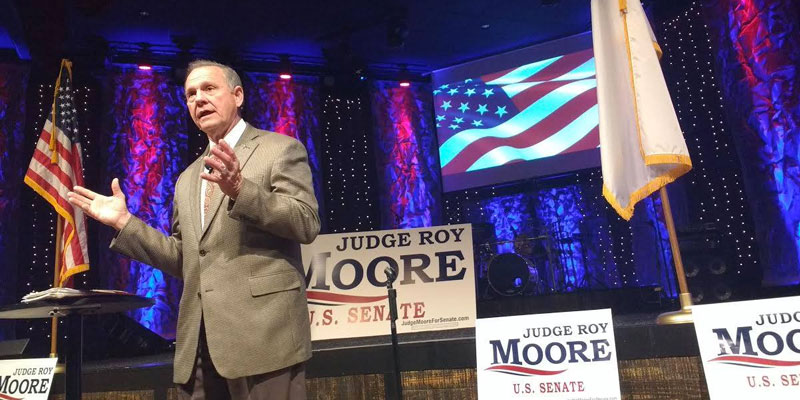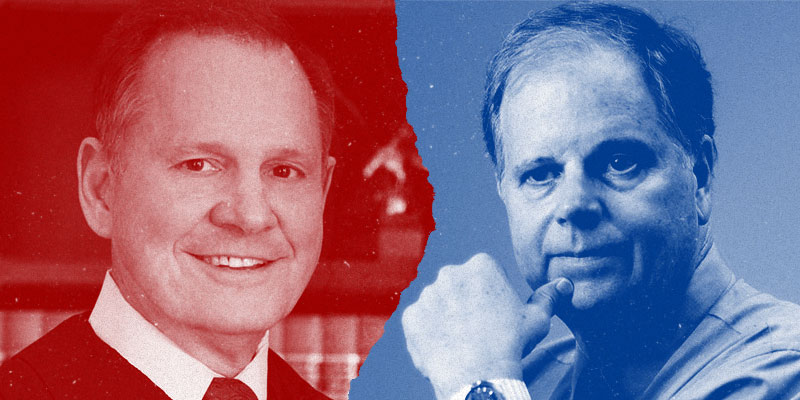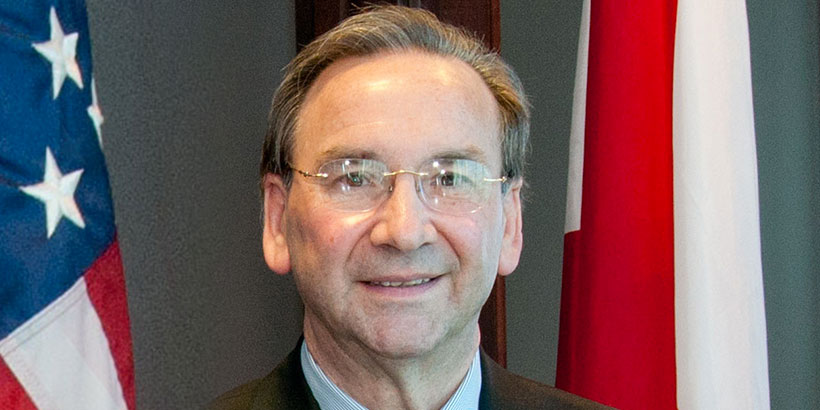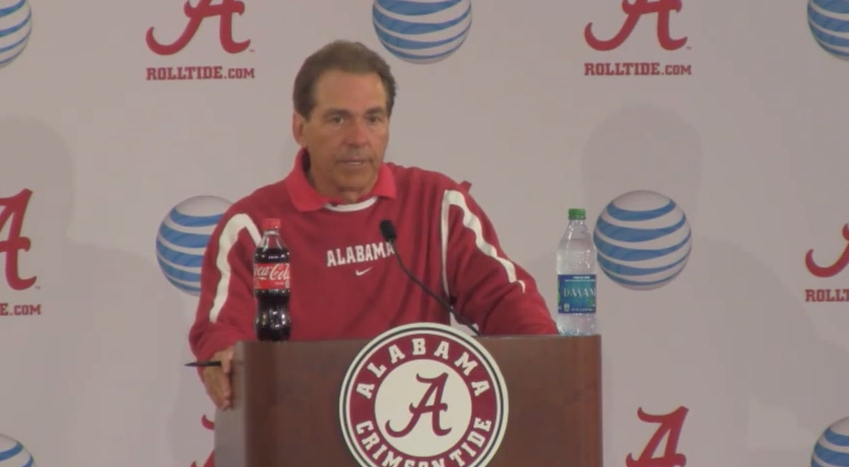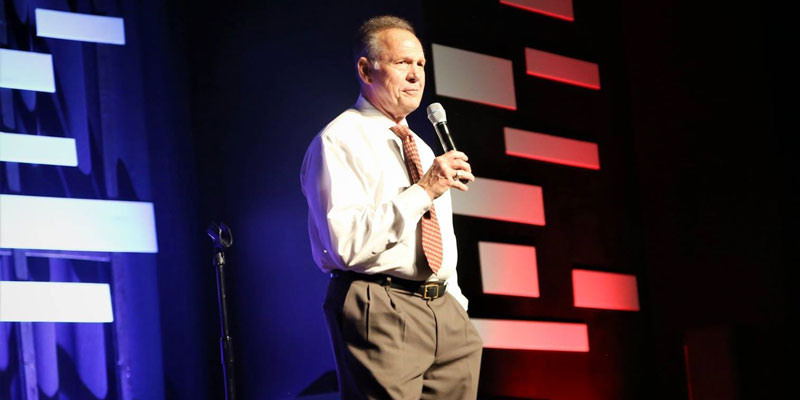
Without taking a position on whether to believe Roy Moore or to believe his accusers, a fair-minded observer can see a rational basis for the beliefs of each.
This column will explain to Moore haters why many (not all, but many) Moore defenders aren’t foolish, ignorant, or hypocritical for believing the allegations false.
My next column will explain to Moore defenders why it’s not illogical, dishonest or anti-Christian to believe that the case against Moore looks strong.
Honest people can see the same set of facts and analyze them differently. This doesn’t mean that every half-baked reaction, pro or con, is intellectually or morally defensible; it does mean that the automatic assumption that the other side has bad motives (or is plagued with utter stupidity) is unfair and unwise.
This defense of Moore supporters is not to say, for example, that over-emotionalized, choose-your-side-and-then-choose-the-facts-that-support-it outlooks are intellectually acceptable. For example, while my editor Pepper Bryars is absolutely right that Alabamians have reason to believe the Washington Post and other establishment-media outlets are biased against the state and against conservatives, that absolutely, positively does not excuse the truly asinine assumption that nothing the Post prints is true, or that objectively well-reported stories should automatically be dismissed as “fake news.”
That’s the sort of willful, obstinate ignorance that leads to the national media’s bad stereotypes of Alabama in the first place.
With those caveats out of the way, though, here’s why a rational, non-hyped-up Alabaman could legitimately doubt that the Post’s story relates events that truly happened.
First, while it is ignorance personified to believe that professional reporters just make things up or encourage accusers to make things up, it is an incontrovertible fact that the vast majority of national reporters hold cultural and political beliefs different from the majority of Alabamans. Is the Post putting resources into digging for dirt on Doug Jones the way it is dirt-digging against Roy Moore? I seriously doubt it. What can happen, then, is that reporters using reasonable journalistic standards might still, in subtle ways, be inclined to accept as legitimate some “corroborating” accounts that in other circumstances they would dismiss as hearsay. Or they might subconsciously refuse to credit some pro-Moore evidence they would otherwise find exculpatory.
In other words, when the trail of institutional bias is strong, it might be logical to demand a little higher burden of proof from a particular journalistic outlet. In sum, it would be wrong to immediately categorize reports as “fake news,” but not unreasonable to be skeptical of subtle, non-deliberate biases.
Second, while the timing of all these allegations may not be as suspicious as many in Alabama are instinctively claiming, it is indeed a bit hard to believe. If nothing like these stories has arisen in some 30 years of Moore running for public office, then people can reasonably theorize that dirty tricks are involved when a story finally comes out only after the man is the party nominee for federal office. As reported at Yellowhammer on Sunday, Alabamans have witnessed spectacularly false allegations before, including the reprehensibly dishonest claim in 1998 that Republican candidate Steve Windom raped a prostitute. And, nationally, the outrageously mendacious rape allegations at both Duke and the University of Virginia in the past decade remind us that one reason some stories are hard to believe is because they are, indeed, not true.
Third, even as strange as Moore may seem to national media, everything known about his character is that he behaves, personally, in a gentlemanly manner. Despite his intensity on some matters, there is a courtliness about him that has usually extended to his campaigns, too, where he usually refrains from mud-slinging. And while some students of human nature may see aspects of some of these new stories to show a pattern of Moore’s questionable behavior around teens, others can just as easily find just the opposite.
The man they have watched for 20 or 30 years act in a courtly manner is, they think, the same man who didn’t even pursue a (perfectly legal) 18-year-old without asking her mother’s permission, and then who did nothing more than kiss the girl. This is hardly the sort of man, they think, who would go so far as to illicitly take a 14-year-old alone to his house and then do the things of which he is accused.
Little more than a century ago, a 32-year-old asking parents if he could “court” their 18-year-old daughter would have been almost ordinary. Even 40 years ago, when the events happened, it would have been seen as maybe a bit strange, but not borderline criminal – and hardly the mark of the sort of predator who would ask a 14-year-old to disrobe.
In short, Moore fans already suspicious of the 14-year-old’s story for the first two reasons above could look at the details of two of the three other “allegations” and see them as making the 14-year-old’s story less, not more, believable.
Fourth, if (and only if) the story about the 14-year-old was false, but the stories involving the older teens are true, then voters could reasonably conclude that nearly 40 years of subsequently upstanding behavior overrides any “weirdness” about the allegations involving the older, non-illegal teens.
The cultural Left has been hyper-sexualizing young people for 50 years, they say, and nobody yelled bloody murder about plenty of other age-gap romances involving late teens – including when then-late-30s Jerry Seinfeld started dating then-17-year-old Shoshanna Lonstein in 1993. So why should Moore going on a “date” and “kissing” an 18-year-old disqualify him 38 years later?
Fifth, some people believe (mistakenly) the myth that if somebody ever misbehaves sexually around a minor, that means the person will do it again and again because the person “can’t help himself” – and that, therefore, the absolute lack of any stories of such behavior from Moore in the past 30 years makes the earlier stories not believable. So widespread is this misunderstanding, indeed, that it is therefore not illogical for somebody to think the lack of such subsequent activity by Moore makes it unlikely he ever behaved in such fashion.
Put all these five factors together, and one can honestly believe, even with no emotional attachment to Roy Moore’s cause, that the most serious allegation against Moore is likely untrue.
This is why nobody should rush to judgment against Roy Moore. In the next column, we’ll see why it’s equally wrong to rush to defend him. If he deliberately, sexually disrobed a 14-year-old when he was 32, of course he should never hold office. What’s needed, therefore, is the patience to see what other evidence emerges, and then a sober and unemotional weighing thereof.
Yellowhammer Contributing Editor Quin Hillyer, of Mobile, also is a Contributing Editor for National Review Online, and is the author of Mad Jones, Heretic, a satirical literary novel published in the fall of 2017.







